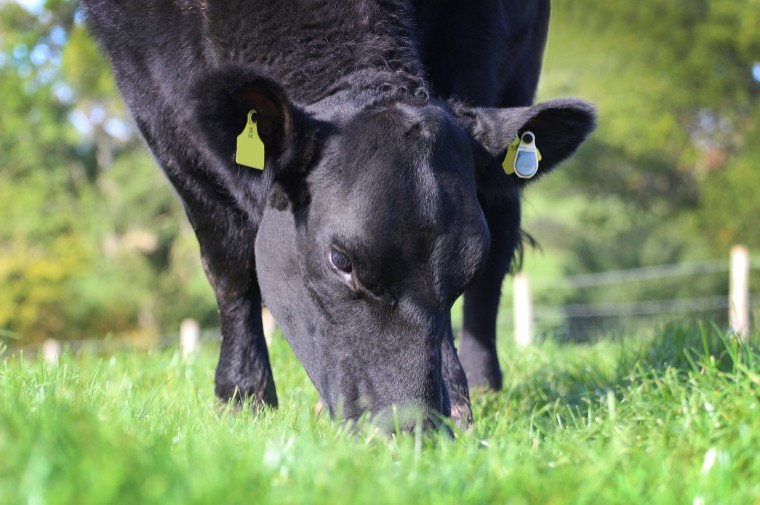SenseTime Beef uses well established and proven technology to measure two main performance indicators in beef cows – activity and rumination – to help farmers identify when individual cows are in heat and to provide early warning alerts for health conditions which could affect productivity and performance.
“The primary aim of the new SenseTime Beef system is to enable beef farmers to produce more calves by reducing their herd’s calving interval,” explains Paul Westaway, Europe, Mid East and Africa commercial manager for Allflex. “It also monitors each cow’s key performance and health indicators and warns herd managers of any abnormal behavioural patterns which could be indicative of poor health. The system can also be used to monitor the recovery of cows after calving and enables beef farmers to keep accurate mating records for the whole herd, with those records easily retrievable via a mobile or tablet.”
SenseTime Beef is suitable for herds using AI or natural breeding programmes and can be accessed via a desktop computer, smartphone, tablet or dedicated SenseTime Panel. It uses the same tried and tested hardware as the dairy version of SenseTime, with a choice of neck collars or ear tags.
The new system has been tested widely across the world and in the UK on a variety of beef cattle breeds including Aberdeen Angus, Simmental, Akaushi, Belgian Blue, Piemontese and Charolais. “In all cases SenseTime Beef has proven to be exceptionally accurate in terms of its ability to reliably highlight the first heat post-calving, thereby enabling herd managers to get cows back into calf as soon as possible,” Paul continues.
The system also highlights the optimum time to use the bull or when to inseminate beef cows, with the ensuing heat and pregnancy records providing a useful indication of the bull’s fertility performance. SenseTime Beef also draws attention to non-cycling or anoestrus cows, enabling herd managers to take proactive steps to reduce the number of ‘empty’ cows within the herd.
“In the UK, the average calving rate per 100 beef cows is just 82,” Paul explains. “That means, at any point in time, as many as 18% of beef cows won’t be contributing to the herd’s productivity. SenseTime Beef addresses this issue by making it easier for herd managers to inseminate cows at the optimum time and to proactively treat non-cycling cows so that they can produce more calves within their lifetime.”
The SenseTime Beef system can also predict each individual cow’s calving due date. “By working forwards from the last detected heat cycle, the system can provide an accurate due date for each cow once she has tested PD positive,” Paul continues. “This is especially useful for herds using a bull where the exact service date might not be known, and means the herd manager can be better prepared to intervene in calvings which are likely to be difficult.”
For AI-herds, the system’s ability to improve conception rates means herd managers can use more expensive semen from better bulls, or synchronise inseminations to match calvings to a specific market opportunity.
The SenseTime Beef system is easy to upgrade and upscale as herds expand: each control box acts as its own data server and antenna which can communicate with up to 1,000 tags. For each additional 1,000 animals, upscaling the system is simply a case of adding an extra plug-and-play control box.
“Improving the productivity and profitability of modern, commercial beef businesses is all about having actionable, accurate and up-to-the-minute data at your fingertips,” Paul concludes. “By monitoring activity and rumination in tandem, SenseTime Beef is able to provide a detailed insight into the herd’s prevailing health, nutrition and reproductive status, thereby enabling herd managers to make informed, meaningful and impactful management decisions to bring real benefits to the herd’s breeding programme and the farm’s profitability.”




